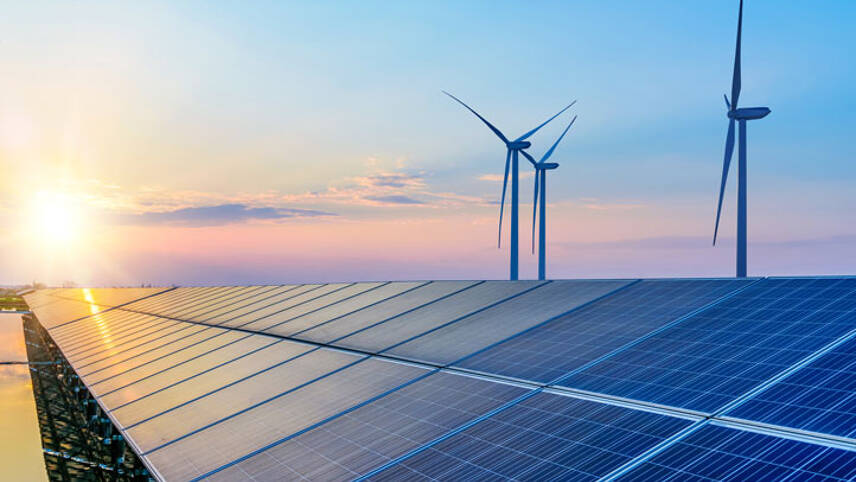Register for free and continue reading
Join our growing army of changemakers and get unlimited access to our premium content

The Association for Renewable Energy and Clean Technology (REA) has this week published its annual REview report, which examines the latest deployment and employment figures for the renewable energy and clean technology industry.
The report found that the energy transition should be viewed as an economic opportunity as well as an environmental imperative. Clean energy industries are on track to support more than 210,000 jobs by 2035, with the market value doubling from 2022 at £23bn to £46bn by 2035.
While these trends are promising, the REA warns that the current political uncertainty – compounded by recent rollbacks to building and transport policies – will hinder the UK’s abilities to meet its legally binding net-zero target for 2050.
The REA is calling for supportive policy measures for heat, transport and circular bioresource to assist the net-zero transition to ensure that firms do not look to other nations to help grow these markets.
The REA’s chief executive Dr Nina Skorupska said: “While we continued to see the dynamic resilience of the renewable energy and clean technology sector over 2022 through the energy crisis, as well as months of political and policy uncertainty, we are not immune to real world economic forces. Indeed, at times it can feel as if we are wading through treacle when repeatedly being challenged to make the economic case for net-zero.
“Even though it has been proven countless times that the energy transition is as much an economic opportunity as an environmental imperative, our sector still finds itself having to overcome naysayers time and time again. We are clear, tackling climate change and boosting our economy is not an ‘either-or’ decision. In fact, it goes hand in hand. I would urge the Government to recognise the opportunities on offer for our country and finally match their warm words with action.”
The report found that wind energy accounted for more than half of the UK’s electricity in 2022, while bioenergy played a “significant role” in generating clean power. New research from the Offshore Wind Industry Council (OWIC) has revealed that expanding the UK’s offshore wind supply chain has the potential to unlock a £92bn boost to the national economy by 2040.
Additionally, the report found that 8.36% of the UK’s total heat consumption and 5.32% of the UK’s total transport energy consumption was generated by renewables in 2022.
Despite this, separate research has warned that the UK will fail to meet its 2035 commitment to end unabated fossil fuel electricity generation. A new report from the Business and Trade Committee concluded that “a cumbersome planning regime” will undermine the delivery of the 2035 target.
By the Government’s own admission, there has been a 65% increase in planning timelines for large-scale energy generation and infrastructure projects since 2012.
The REA also examined the spread of clean energy jobs across the nation, finding that much of the industry is currently weighted towards London and the South East.
The REA found that support from the Government to grow supply chains across different regions could help distribute more jobs and economic opportunities. The North East, for example, could see a 111% increase in market value by 2035. Green job growth in the North could reach more than 30,000 with another 12,700 jobs held in Yorkshire and the Humber, a key industrial cluster.


Please login or Register to leave a comment.